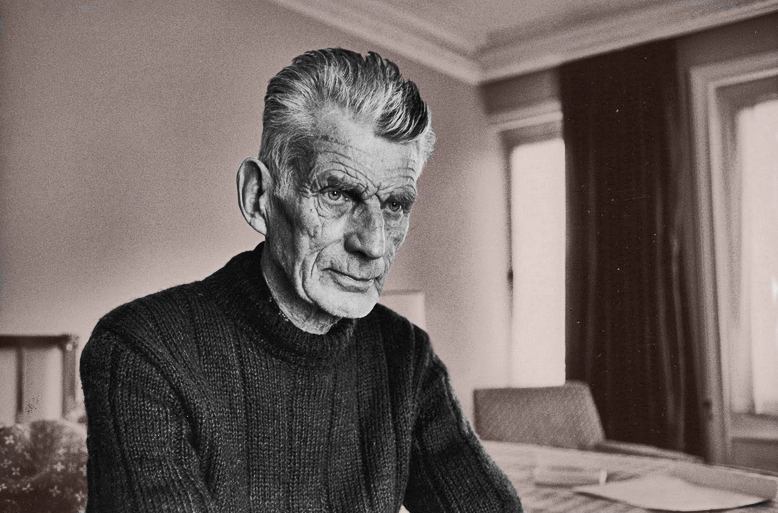
Samuel Beckett writes to his literary agent, George Reavey, regarding some cuts to Murphy requested by Ferris Greenslet of Houghton Mifflin—cuts that Beckett saw as nothing less than “Zerstörungswut,” that is, destructive mania.
Schlüterstrasse 44 bei Hoppe
Hamburg 13
13/11/36
Dear George,
Thank you for letter with Greenslet’s enclosed. Let me say at once that I do not see how the book can be cut without being disorganised. Especially if the beginning is cut (& God knows the first half is plain sailing enough) the later part will lose such resonance as it has. I can’t imagine what they want me to take out. I refuse to touch the section entitled Amor Intellectualis quo M. se ipsum amat. And I refuse also to touch the game of chess. The Horoscope chapter is also essential. But I am anxious for the book to be published and therefore cannot afford to reply with a blank refusal to cut anything. Will you therefore communicate to Mr Greenslet my extreme aversion to removing one third of my work, proceeding from my extreme inability to understand how this can be done and leave a remainder. But add that if they would indicate precisely what they have in mind, and the passages that cause them pain, I should be willing to suppress such passages as are not essential to the whole and adjust such others as seem to them a confusion of the issue. Be astonished, firm, & up to a point politely flexible, all at once, if you can. Do they not understand that if the book is slightly obscure, it is so because it is a compression, and that to compress it further can only result in making it more obscure? The wild & unreal dialogues cannot, it seems to be, be removed without darkening & dulling the whole thing. They are the comic expression of what elsewhere is expressed in elegy, namely if you like the hermetism of the spirit. Is it here that they find the “skyrockets”? There is no time and no space in such a book for mere relief. The relief has also to do work and reinforce that from which it relieves. And of course the narrative is hard to follow, & of course deliberately so. Am I then Berdaev [Berdyaev]? That I should adorn with historical amnions & placentae a non-historical uterus? And sink grapples in a womb ceaselessly pregnated & never delivered? And crowd the last chapter with oyster kisses & Murillo brats? But this is all dans le vide, & must remain so, until I know in detail what it is that upsets them.Perhaps if [Stanley] Nott were to express willingness in event of USA collaboration to publish the book as it stands, or totters, and furthermore to give out as his opinion that cuts are not desirable, the Mifflin Zerstörungswut might be pacified…
Amicalement
s/ Sam
From The Letters of Samuel Beckett. Ed. Martha Dow Fehsenfeld and Lois More Overbeck. Cambridge: Cambridge University Press, 2009.
FURTHER READING
Here is some more information on Samuel Beckett’s struggle to get Murphy published.
An interview with George Reavey on Samuel Beckett’s early writing.


